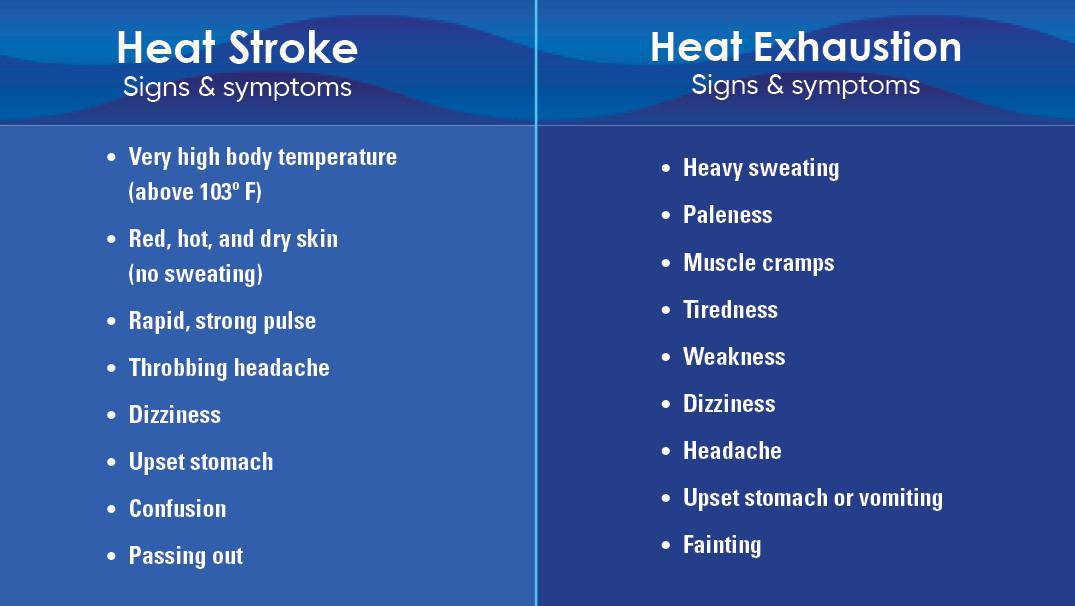With summer officially underway this week, temperatures will continue to reach over 100-degrees daily, bringing an even higher risk of heat stress. It is imperative shipbuilders hydrate and replenish their electrolytes in order to avoid heat-related illness.
Signs of heat stress include muscle cramps, weakness or fatigue, light-headedness, dizziness, blurry vision, trouble focusing, nausea, excessive sweating, pale or flushed complexion, or fast and shallow breathing.
Left unchecked, heat stress can lead to heat exhaustion, heat stroke, heart attack, heat cramps or heat rashes.
Heat stroke is the most serious form of heat injury, occurring when a person’s body temperature rises to 104 degrees or higher. If left untreated, heat stroke can quickly cause damage to a person’s brain, heart, kidneys and muscles. The damage worsens the longer treatment is delayed, increasing the risk of serious complications or death.
It is important to know the signs of heat stress and proper first aid treatment. Signs of heat stress are often overlooked by the victim, who at first may be confused or unable to concentrate, which is followed by more severe symptoms such as fainting or collapse.
Some people are more likely to have heat disorders than others. Those with heart, lung, or kidney disease, diabetes, and those on certain medications are more likely to experience heat stress problems. Diet pills, sedatives, tranquilizers, caffeinated drinks, and excessive alcohol consumption can all intensify heat stress effects.
If heat stress symptoms occur, move the victim to a cool, shaded area, give him or her water, and immediately contact a supervisor. Emergency first responders can be reached by dialing 911 from any Ingalls phone, or by dialing 228-935-6101 from a cell phone.
Tips to Prevent Heat Stress
Hydrate yourself well before the beginning of your shift.
Avoid alcohol, caffeine, and drinks with large amounts of sugar.
Wear light-colored and breathable clothing when possible.
Monitor yourself and coworkers for signs of heat stress.
Get plenty of rest.
Listen to your body. Stop and take five if you feel you are getting overheated.

